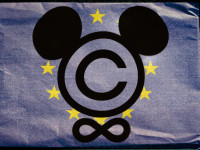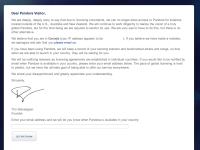Reports from CTV and the Globe and Mail indicate that the government is planning to introduce a new copyright exception for political advertising. The reports suggest that the exception would permit the use of news content in political advertising without authorization provided that it meets three conditions:
News content would have to meet three criteria for this exemption, the cabinet memo says. It would have to be published or made available through TV broadcasts or platforms such as YouTube. It would have to be obtained from a news source such as a news program or newspaper or periodical. And it would have to feature a political actor operating in that person’s capacity as a politician, or relate to a political issue.
While the reports sparked an immediate reaction claiming the government is legalizing theft, my view is that copyright law should not be used to stifle legitimate speech. Political speech – even noxious attack ads – surely qualifies as important speech that merits protection (see this CDT analysis for similar concerns in the US). I am not a fan of attack ads, but attempts to use copyright to claim absolute rights over the use of a portion of a video clip is surely counter to basic principles of fair dealing (in Canada) or fair use.











